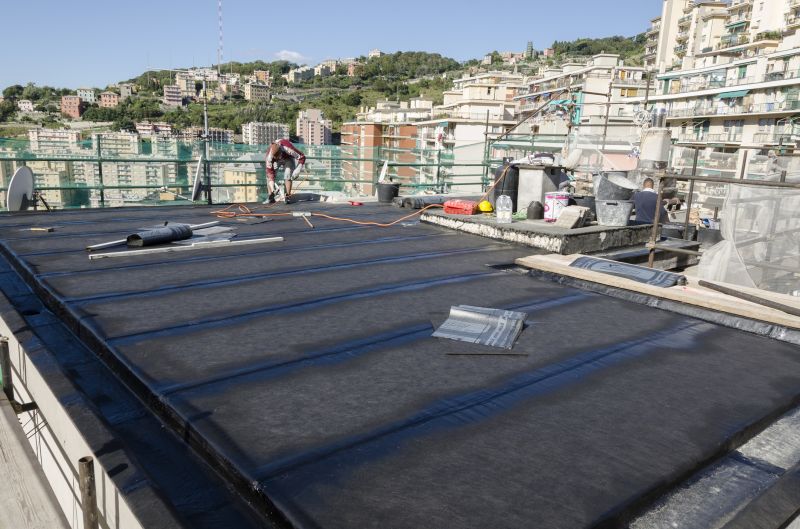Top-Rated Products for Roofing Service That Boost Productivity and Precision
Equip your team with trusted roofing tools and supplies designed to improve accuracy and efficiency on site.
 When undertaking roofing projects in North Branch, MN, selecting the right products is essential for ensuring a durable and effective roofing system. From basic tools to specialized materials, the variety of products available can accommodate different project scopes and skill levels. Roofing projects often require a combination of protective materials, installation tools, and safety equipment to achieve optimal results. Proper selection and use of these products can help improve the longevity and performance of a roof, whether for new construction, repairs, or maintenance.
When undertaking roofing projects in North Branch, MN, selecting the right products is essential for ensuring a durable and effective roofing system. From basic tools to specialized materials, the variety of products available can accommodate different project scopes and skill levels. Roofing projects often require a combination of protective materials, installation tools, and safety equipment to achieve optimal results. Proper selection and use of these products can help improve the longevity and performance of a roof, whether for new construction, repairs, or maintenance.
Top Overall Option
Roofing Underlayment
Roofing underlayment serves as a critical protective layer beneath the primary roofing material. It acts as a secondary barrier against water infiltration, helping to prevent leaks and damage caused by weather elements. High-quality underlayment is designed to be durable, flexible, and resistant to tearing, making it suitable for various roofing styles and conditions. Selecting the right underlayment can enhance the overall performance and longevity of a roof, especially in climates with fluctuating weather patterns like North Branch, MN.
Types of Products For Roofing Service
Roofing Membranes
Flexible sheets used as waterproof barriers in roofing systems, available in various materials such as rubber, TPO, or PVC.
Roofing Underlayment
Protective layers installed beneath the roofing material to prevent water infiltration and enhance durability.
Flashing
Metal or plastic components that seal joints and edges to prevent water leaks around chimneys, vents, and skylights.
Roofing Nails and Fasteners
Specialized nails and fasteners designed to securely attach roofing materials to the underlying structure.
Sealants and Adhesives
Materials used to seal joints, seams, and penetrations, ensuring watertight integrity.
Roofing Tools
Essential tools such as hammers, roofing knives, and pry bars that facilitate installation and repairs.
Safety Equipment
Harnesses, ropes, and protective gear to ensure safety during roofing work.
Ventilation Products
Vents and ridge caps that promote airflow and prevent moisture buildup within the roofing system.
Gutters and Downspouts
Components that channel water away from the roof and foundation, preventing water damage.
Roof Coatings
Protective coatings that extend the life of roofing materials and improve resistance to weathering.
Insulation Materials
Materials that improve energy efficiency and temperature regulation within the building.
Roof Decking
Structural panels that form the base for roofing materials, providing support and stability.
Skylight Flashing
Specialized flashing designed to seal around skylights and prevent leaks.
Roofing Cement
Sealants used for patching and sealing minor cracks or leaks in roofing materials.
Snow Guards
Devices installed to prevent snow from sliding off the roof suddenly, protecting property and pedestrians.
Popular Choices
Versatile waterproof barriers suitable for various roofing applications.
Commonly used as an additional protective layer beneath shingles or metal roofing.
Frequently selected for sealing roof penetrations and edges.
Widely used fasteners for attaching shingles, panels, and other roofing materials.
Popular for sealing around vents, chimneys, and seams.
Essential safety gear for roofing work at heights.
Commonly installed to manage rainwater runoff effectively.
Chosen for extending the lifespan of roofing materials.
Trending for improving attic ventilation and airflow.
Popular for enhancing energy efficiency in roofing assemblies.
Frequently used to ensure watertight installation of skylights.
Commonly applied for minor repairs and patching.
Increasingly installed in snowy climates to prevent snow slides.
Popular for DIY projects and professional contractors alike.
Trending for their durability and modern appearance.
Growing in popularity for ease of installation and performance.
In demand for improving attic air circulation.
Popular for reducing gutter maintenance.
Understanding the different types of roofing products available is crucial for both professionals and DIY enthusiasts. High-quality roofing membranes, underlayment, flashing, and sealants play a vital role in safeguarding against water infiltration and structural damage. Additionally, tools such as roofing nails, hammers, and safety harnesses are necessary for efficient and secure installation. Investing in reliable products suited to the specific needs of your project can contribute to smoother workflows and better outcomes.
In North Branch, MN, where weather conditions can vary, selecting products with proven performance in local climates is especially important. Durable materials that resist moisture, wind, and temperature fluctuations will help maintain the integrity of the roof over time. Whether you are replacing an existing roof or installing a new one, taking the time to choose the right products can make a significant difference in the durability and appearance of the finished project. Consulting with local suppliers or roofing professionals can provide additional insights into the most suitable products for your specific location and project requirements.
Key Buying Considerations
- Compatibility with existing roofing materials and system requirements.
- Weather resistance and durability in local climate conditions.
- Ease of installation and compatibility with skill level or contractor expertise.
- Material lifespan and maintenance requirements.
- Waterproofing capabilities and resistance to leaks.
- Compliance with local building codes and standards.
- Availability of replacement parts and accessories.
- Weight and structural support requirements.
- Cost-effectiveness over the lifespan of the product.
- Warranty and manufacturer support.
- Environmental factors such as UV exposure and temperature fluctuations.
- Ease of handling and storage before installation.
- Compatibility with insulation and ventilation systems.
- Safety features and ease of use during installation.
- Aesthetic considerations and how the product matches existing structures.
